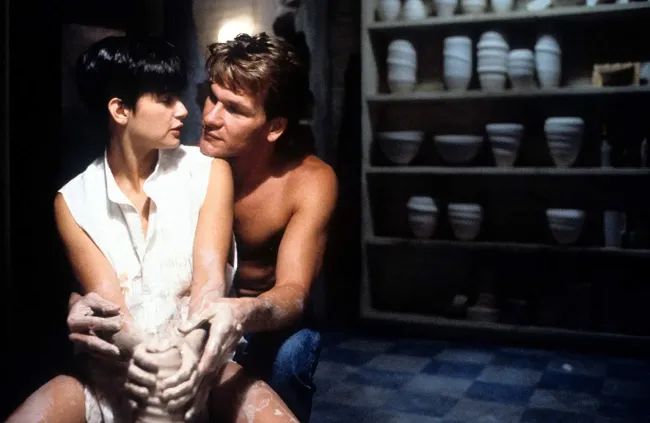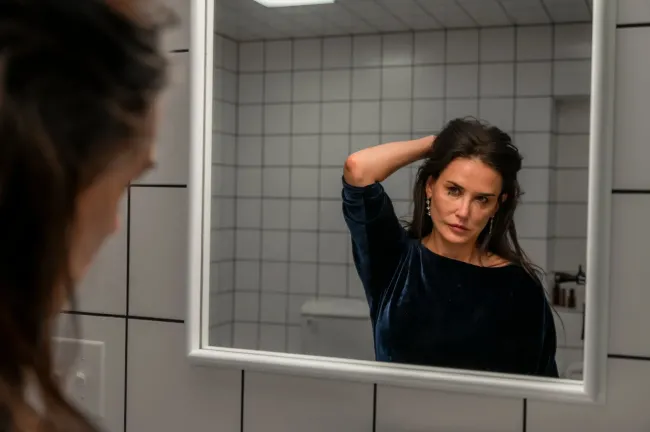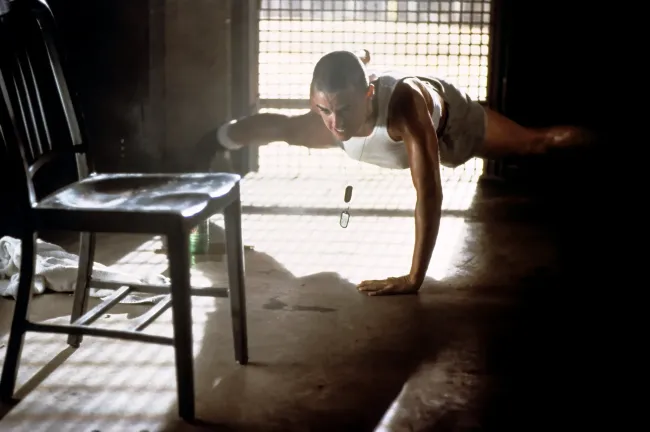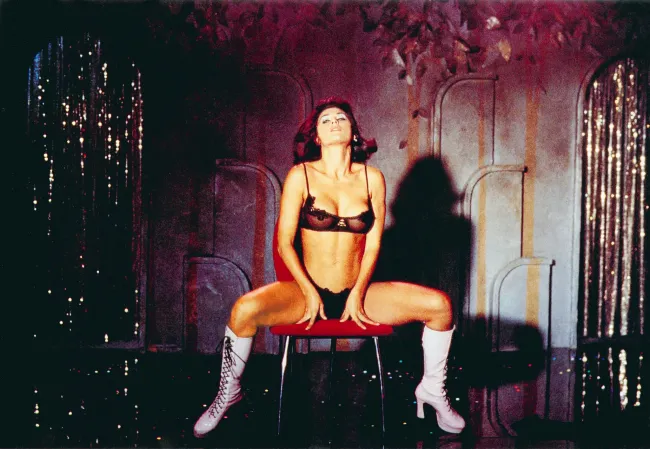Demi Moore’s Defiant Comeback: From Hollywood Sex Symbol to Fearless Rebel in The Substance—Will the Industry Finally Wake Up?
In the late 1990s, after years of reigning supreme on Hollywood’s glittering throne, Demi Moore’s star began its descent.
Once one of the industry's biggest icons—her name synonymous with blockbuster success and headline-grabbing drama—Moore's shine dimmed under the relentless glare of celebrity gossip, messy marriages, and an unforgiving spotlight. She sold herself to the world like a Hollywood product, her body often taking center stage over her talent. Hollywood did what it does best—it commodified her.
Now, Moore, in her fifties and still radiating that dangerous allure, has stunned audiences once again in her latest film, *The Substance*. Directed by French provocateur Coralie Fargeat, this visceral body horror, set to release on September 20, strips bare not just the body, but the soul of commodified womanhood. And Moore? She owns it. This is a performance where you quickly forget the constant nudity; her raw emotional intensity rips through the screen, forcing you to see *her*—not her body, but her rage, her depth, her power.
But the question still lingers: will Hollywood give her what she deserves? In *The Substance*, Moore’s presence is electric, pulsing with the kind of physical and emotional gravitas only a seasoned artist can bring. Her character’s journey from innocence to a dark, rage-filled spiral is terrifyingly brilliant. Yet again, Moore bares all—literally. At 61, her nakedness feels less like exploitation and more like a brazen act of defiance against the very system that’s been stripping her down for decades. Her gaze into the camera isn’t seductive—it’s cold, clinical, like she’s staring down the demons that have haunted her career.

Flash back to the '80s. Being a woman in Hollywood was brutal, especially for someone who wanted to be more than just a sex symbol. Moore clawed her way up through the Brat Pack ranks with films like *St. Elmo’s Fire* and the underwhelming *About Last Night*, before *Ghost* (1990) finally immortalized her. She wasn’t just a star. She was the moment—a force who could balance box office appeal with poignant performances.
But Hollywood, predictably, has never stopped trying to shove her into a box—one defined by her looks rather than her artistry. Moore, however, has always fought back. Now, with *The Substance*, she’s screaming that fight loud and clear. But the bigger question remains: Will the industry wake up and realize that Demi Moore, even in her sixth decade, is more than a body? She’s a powerhouse—an artist who refuses to be commodified any longer.
Demi Moore has always been a master at commanding attention—whether draped in skimpy costumes or baring it all on screen. But let’s not pretend it’s always been in her favor. Hollywood, with its blatant hypocrisy, has cheered men like Sylvester Stallone and Arnold Schwarzenegger for their muscled bravado in violent action flicks, while Moore was crucified for daring to show skin in the absurd *Striptease* (1996). Here was a film more interested in exploiting her body than telling a real story, reducing her to an exotic dancer fighting for custody while caught up in political chaos. It was a circus of objectification, and Moore was its main attraction.

At the same time, Hollywood was in a frenzy over inflated actor salaries—especially for men. In her explosive memoir *Inside Out* (2019), Moore didn’t hold back, revealing how her ex-husband Bruce Willis pocketed over $20 million for *Die Hard 3*, while she scraped by with $12.5 million for *Striptease*. The result? Moore wasn’t praised; she was ridiculed with the nickname "Gimme Moore," as if daring to command a fraction of the salaries her male peers earned was somehow greedy. Hollywood was perfectly fine selling violence through men’s bodies, but Moore’s nudity? Unforgivable.
Was this why Moore pivoted to *G.I. Jane* (1997), a film where she was determined to be seen as more than just sex appeal? Under Ridley Scott’s direction, she physically transformed into a lean, fierce Navy SEAL recruit, shedding her glamorous image for grit. Yet, despite her undeniable strength, Hollywood couldn’t help itself—zeroing in on that infamous one-armed push-up scene. Instead of focusing on her endurance, all anyone could talk about was her nipples pressing through the tight shirt. The film tanked, and once again, Moore’s fight to be more than an object was sabotaged.

In her memoir, Moore spills the truth about the industry’s disturbing obsession with her body, a fixation she couldn’t escape. Take *Indecent Proposal*, where director Adrian Lyne reassured her that any scene she felt uncomfortable with would be cut. But Moore confessed, “I kept performing, and all I could think about was my body, my body, my body.” Her relentless focus on her appearance became a double-edged sword. No matter how hard she trained, Hollywood still nitpicked. Ed Zwick said she was too fat for *About Last Night*, while Lyne criticized her for being too thin. It was a no-win game, and Moore was always the pawn.
Hollywood, the media, and directors all worshipped her body just to tear her down when they were done. But Moore? She survived it all—humiliation, exploitation, and eventually, her own rebirth. Her career has been a rollercoaster of triumphs and tragedies, with her naked body always at the center of the controversy. Yet here she stands, decades later, undaunted, still daring to be fearless, still daring to be naked—only now, it’s on her terms. The world may not have changed, but Moore has. Bold, unbroken, and still commanding attention, she’s rewriting the rules.***
